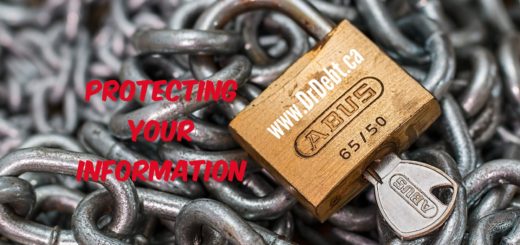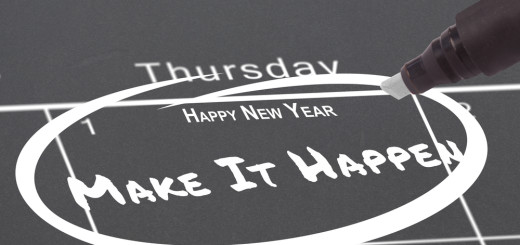The 6 most important lessons I learned last year
As I prepared to do my first radio show for the year (In case you’re curious I’ve put the details at the bottom of this post), I was reviewing the most important points that I found myself sharing over and over again throughout the year.
From that I came up with my Top 6 Tips for having happier, healthier finances this year! (Yay! clapping excitedly!)
And they are… (drum roll please)….(Ok, I may be a tad too excited..ha ha)
(This post is much longer than I would traditionally post. But I had a lot to say on this one! I hope you read to the end, there are some great pieces of advice below.)
- Tracking expenses needs at least a year to be effective
- Savings should be an ongoing goal and should be broken down into three parts
- Evaluate (or re-evaluate) your relationship with credit
- Seek expert advice
- Understand your credit report / score
- Consider needs versus wants & simplify
#1 Tracking expenses needs at least a year to be effective
I can’t emphasize how important tracking your expenses are. The information you get from tracking is so powerful. It allows you to make choices about where your money goes. When you lack a tracking system you fall victim to mindless spending, a dangerous place where your money just goes “wherever” and isn’t working to help you accomplish what’s really important to you. It’s sort of like sitting down and watching TV for the entire day. Every once in a while you may need that “mindless time” but over the long term it will rob you of a more fulfilling life.
The reason tracking needs a year-long commitment is that you won’t cover all of your expenses in a month or two, and your spending changes from month to month, so a short-term tracking process will only give you a snapshot that may not be accurate. As an example, let’s say you start tracking your expenses in January and you give up after 3-4 months, and let’s say that most of your families birthdays fall between June and December, you’ve missed a large occasional expense that needs to be planned for (and I didn’t even mention Christmas!). Or, we could use a monthly expense such as groceries as the example; you’ve captured your eating habits through the winter months, but your cost could way up, or down, in the summer for various reasons – a different menu, travelling, eating out more often, harvesting fresh garden vegetables, etc. You would have missed that trend by only tracking for a few months.
Tracking your expenses doesn’t have to be difficult. It’s important that you chose the best method for you based on your habits and skill set. I’m currently working on a blog on the various ways you can track and will post the link here (and send it out to subscribers) once it is finished.
Related Post: Track your spending for success
#2 Savings should be an ongoing goal and broken down into three parts:
Let me just start by saying that saving something, anything!, is better than saving nothing. Putting away 10% of your income, for example, is a great thing to do. However, a more structured approach will ensure you have the money for both expenses and goals.
Case in point! – let’s say you save 10% of your income and after a year you have $4000 sitting in an account. (Yay you!) You decide to take a trip (because you freakin’ deserve it after all that hard saving!). You take it all out, go on your trip, come back and settle back into life. Your furnace dies two weeks later. Oops. You didn’t get a chance to “replenish” your savings. Now what?
This scenario is exactly why I recommend you save for 3 different reasons. Short-term ‘occasional’ expenses, emergencies and goals. Let’s look at each of these in turn shall we…
(1) Short-term occasional expenses
- These are expenses you WILL (do!) have. They don’t happen every single month but they do happen. Here are some of the most common ones:
- Car Maintenance – if you have a car, you have some maintenance. Track what you spend in a year, divide it by 12, put away that much plus at least 10% more (because vehicle maintenance needs increase as the car ages).
- Gifts – Christmas (if you celebrate it) comes around every year, your family members and friends have birthdays/anniversaries annually. Even those one-off graduation gifts, wedding gifts, shower gifts, can be anticipated months in advance. And if you have kids, they likely attend other kids birthday parties each year.
- Home Maintenance – if you own a home, you have costs. Period. I actually did some research on the cost to maintain a home over the long-term…how long appliances last, the cost to replace them etc. According to my calculations and research, you would need to put away approximately $250 per month to be able to pay for maintenance costs as they occur. That’s $3000 per year. That’s almost your entire “savings” noted above. Better downsize that vacation. 🙁 (See my worksheet for calculating home maintenance costs here: Homeownership – Repairs & Maintenance Costs – example
- Kids Activities – Ah yes! You want your kids to be active, to be involved in stuff. That’s admirable. So plan for it. Total up the annual cost of memberships, equipment/gear, additional travel, dining out (if their activity requires travelling from arena to arena/field to field), divide it by 12, and add that amount to your spending plan.
- Pets – I see more and more people with pet insurance these days. That can be a lifesaver. While food costs tend to be part of your regular grocery bill, vet costs are not. As pets get older they tend to have health issues and vet costs can reek havoc on your spending plan. Don’t have pet insurance? That’s ok, plan to have a minimum amount tucked away for pet costs.
What occasional expenses do you have? Use this planning sheet to help you get started: Occasional Expense Account – Planning Sheet
(2) Creating an emergency fund (for REAL emergencies)
- I felt this was important enough to single out as there are two main pitfalls we fall into with respect to emergency funds.
(1) We don’t “categorize” what is an emergency, then we manage to put some money aside and magically, anything becomes an emergency! ~ those new shoes on sale, needing more groceries, ordering pizza & those occasional (anticipated) expenses noted above.
(2) We rely on credit as our emergency fund and don’t bother saving. That plan is ok if, and that’s a BIG “IF” you pay off the amount in full before any interest charges. Otherwise, you are paying a fee for emergencies, making them more expensive and harmful than they already are. And that just doesn’t make any sense at all!
Emergencies are the actual unexpected expenses that can occur….not car repairs, not gifts, not home maintenance…crazy things like, I don’t know, a tree falls on your home and you need to run out and get supplies to fix it, an unexpected illness that causes you to miss time at work, or spend money on health care products, the company you work for just filed for bankruptcy). Some of these things can be covered by insurance, but even with insurance, there are often out-of-pocket expenses.
(3) Saving for goals. Which can also be broken down into short (less than 12 months), medium (1-5 years) and long (over 5 years) terms.
- This IS your actual savings for the ‘things that you want’. The category is endless but would include such things as a vacation, home improvements, those new shoes on sale <grin> or that new power tool that you want, an anniversary weekend, a down-payment for a home, retirement savings, the list is endless.
(Wow! That was a long point…probably should have made that a blog on it’s own!)
#3 Evaluate (or re-evaluate) your relationship with credit.
- Who’s controlling whom? (did I get the proper grammar there. I’ll be honest, I never know when to use the word whom :/)
- The test is really, really simple. If you pay off your credit in full every month and do not pay interest, you are controlling your credit and winning the game. If, on the other hand, you are carrying a balance and paying interest or you need credit to “make ends meet each month” then credit is controlling you and you are losing the game.
Related Post: Are you controlling credit or is credit controlling you?
#4 Seek expert advice
There are so many resources out there to take advantage of. If you have never learned to manage money seek the advice of a Financial Counsellor, Banker, Credit Counsellor or Licensed Insolvency Trustee (<– that’s me, pick me! lol). Many professionals offer free consultations and can help point you in the right direction. There are not-for-profit groups and low cost alternatives as well. Don’t forget about the world wide web, it is full of tremendous resources to help you learn the financial skills necessary to have healthier finances.
One of my favorite resource sites in Canada: FCAC
#5 Understand your credit report / score
It still amazes me how few people have actually checked their report/score or, when they do look at, do not truly understand it. Ok, maybe it is not so surprising…I mean really, who ever taught us what to look for. I do find that we are becoming more aware of our credit score with free resources such as Credit Karma (TransUnion affiliate) and Borrowell (Equifax affiliate). And, at the very least, checking in on our credit score. As a general rule of thumb, your score should be at least 650. If it is below 650, you definitely want to take steps to increase it.
Did you know that your credit score determines what interest you pay (your cost) on money you borrow? That’s a pretty good reason to have an understanding of what it is, what it should be and how to improve it if need be.
Related post: What you need to know about your credit reports
#6 Consider needs versus wants & simplify
We live an extravagant life in Canada (North America to be more precise). It may not feel like it when you are living paycheque to paycheque, but if you really look at all you have (a warm bed to sleep in, food in the refrigerator, a car to drive, so much stuff that it clutters your house/shed/garage) it is hard to argue that we are rich society.
The issue is, we take it all for granted and we want more. Bigger homes, newer cars, prepared & packaged foods (which tend to cost more). How many people do you know who take trips annually, have braces, color their hair, have their nails done, have a garage or shed outfitted with all the tools to run a small shop if they chose to, play on their ATV’s, boats, motorcycles etc. I could go on. But I shan’t. (Shan’t? really, is that a word! I am either on fire or completely out of my literature realm here…ha ha).
My point is, it is easy to get swept up in the ‘wanting more’ mentality, but much more gratifying to take a step back and evaluate what is really important and simplify your life. Gratifying at a soul level. That is completely different than the gratification we think we get from having everything we think we want. Not that there is anything wrong with having what you want. But if you owe money on it, you don’t actually have it now do ya?
So there you have it!
My top 6 list. If you just incorporate these as part of your goals for 2018, I can guarantee you will be on the right track to improving your financial situation! And I promise that the following blogs will be much shorter 🙂
Wishing you all a Prosperous New Year, and as always…
Happy, healthy, finances!
Mary Ann Marriott
aka Dr Debt
RADIO SHOW DEETS: “Money Matters with Mary Ann” airs every Thursday evening 7-8PM Atlantic Time, 88.7 Cove FM (www.CoveFm.com). Feel free to listen in sometime 🙂






